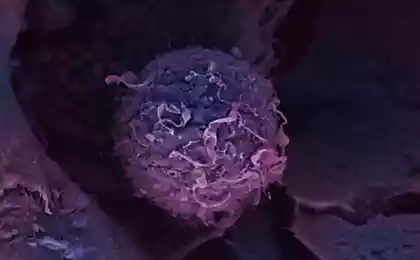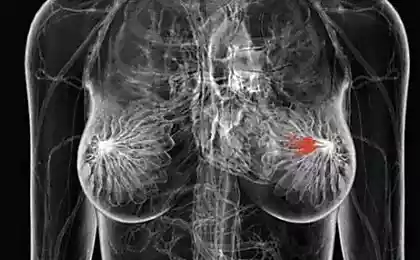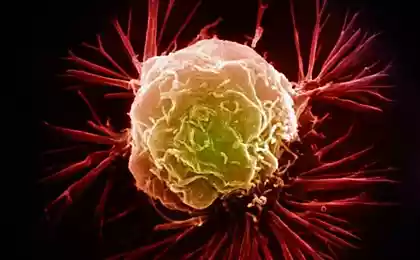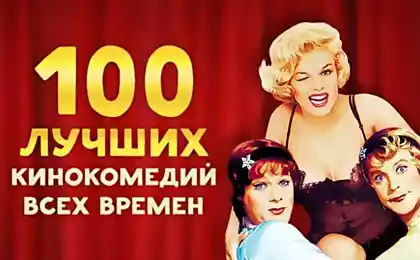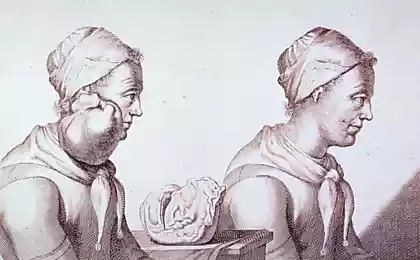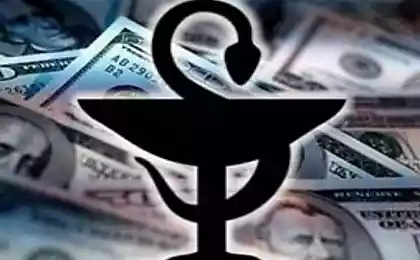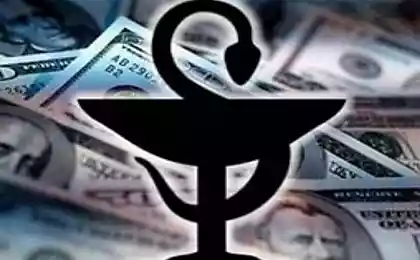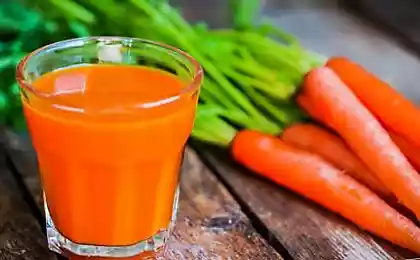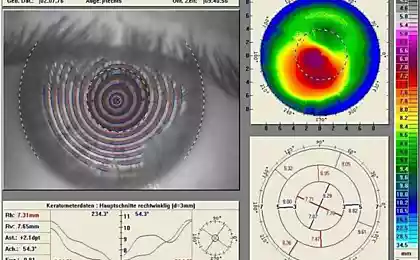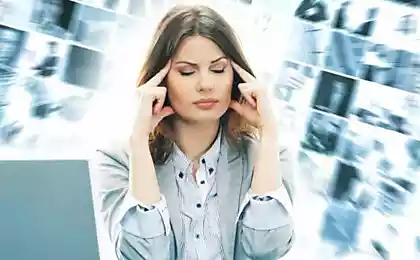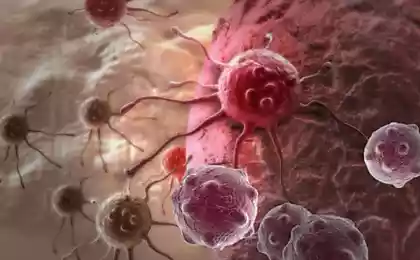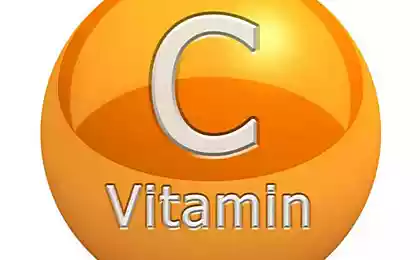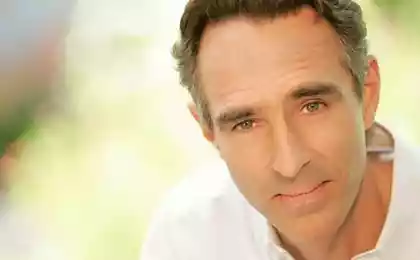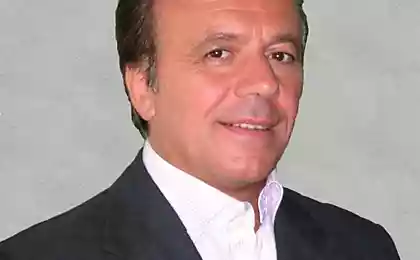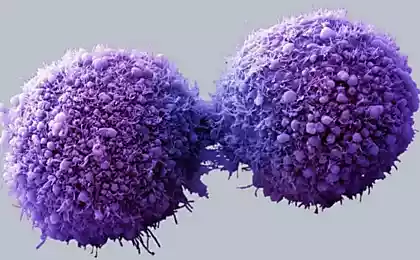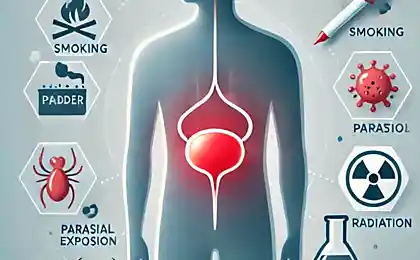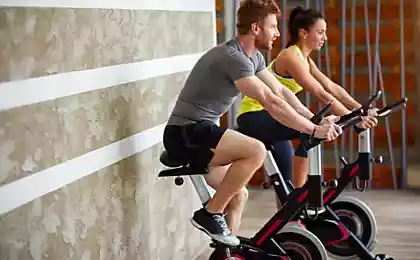647
Schoolboy from the United States came up with the method of cancer diagnosis
15-year-old genius jack andraka told Forbes, as did the discovery that can make a revolution in the diagnosis of cancer
I would like to introduce you to jack andraka. In the future you will hear that name again and again. Jack - a scientist and innovator. It is a simple test to detect cancer of the pancreas, lung and ovarian cancer in its early stages staggering.
Here are a few facts:
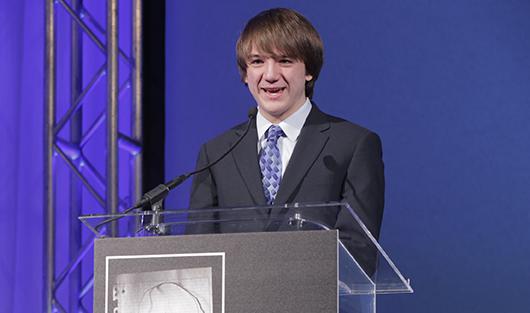
- Test at 168 times faster than those available today to patients;
- Test at 26 000 cheaper counterparts, and this is not a typo;
- The test puts an accurate diagnosis in almost 100% of cases.
But the most striking thing in this test is that its inventor only 15 years old. To speak with Jack, I sent him a tweet. The answer caught me by surprise: "It would be great! I come home from school today at 2:15. " While I understood the medical aspects of the opening Andraki completely forgotten that he was merely a disciple.
Mezotelin protein - the main marker for the detection of cancer, which is produced by malignant cells. To make the discovery, Jack human antibodies combined with carbon nanotubes and conventional sheets of filter paper. The outcome of scientific research of the young genius was the measuring instrument, similar to the one that diabetics use to determine the level of blood sugar.
Andraka strip of paper dipped in a solution of cylindrical single-walled carbon nanotubes (with a wall thickness in the atom), coated with special antibodies. Due to detect antibodies in blood tubes mezotelin thus at the early stage can be diagnosed cancer and promptly start treatment. For the experiments, Jack created a sensor value of $ 50 (the device "similar to iPod», said the inventor, in an interview), the cost of its test is 3 cents. The sensitivity and accuracy of the instrument at the same time proved to be extremely high. The biomaterial can be used as blood and urine.
For his test Andraka has already received the top prize of $ 75 000 for a school science fair by Intel in the past year. Several private companies apply for adaptation to the needs of medical discoveries on a global scale.
That's what he told Jack.
- When did you first become interested in science and in particular the fight against cancer?
- I was interested in science from an early age, as parents never answered my questions, but always helped me to know the answers yourself. So I learned how to make hypotheses and try to prove them, but did not know that "doing science»!
A cancer, especially pancreatic cancer, I became interested after my "uncle", a very close friend of our family, died of the disease. It turned out that every day die from cancer of the pancreas 100 people and that the diagnosis in the early stages, which gives a chance for salvation, is carried out using expensive, slow and not sufficiently reliable tests. I decided that the problem should be some more effective solution.
- Who or what inspired you to something, to throw the challenge?
- I basically like to challenge and likes to look smart and simple solutions to complex problems. I devote a lot of time solving mathematical problems, and my teachers always tell me that although you can use in dealing with brute force, always have to think about other ways, more subtle. My idols in mathematics are able to explain the really complicated proof several available actions. With this approach, I puzzled over a new problem.
- People downplay the importance of innovation in your opening because of your age?
- I do not think. They see that it's a great idea. When I attend conferences, I certainly notice a slightly condescending attitude.
At the preliminary meeting of delegates sometimes people think I'm a child of someone from the speakers, but after the speeches I have to join the great debate.
The internet is good, it's the fact that people can not know your age or race, can exchange information completely free.
- How did you do your opening? It was a sudden inspiration? Details come only later?
- I prefer to first read a lot of newspapers and articles on various topics, and then lie down on the couch, or walk to give information "to settle." Then suddenly comes the idea that connects everything together. Then again, I'll take the reading to fill in the missing place. Before creating this sensor, I spent a lot of time on the study of the properties of nanoparticles in the previous studies of the effects of metal oxides on marine organisms. I felt that by its properties of single-walled carbon nanotubes are like superheroes materials science, like to work with them even in some area. When I read about these tubes in biology class, the teacher explained to the class that this antibody. Suddenly I tied the two stories and imagine what would happen if I put in a solution of nanotubes antibodies to detect the protein that diagnose pancreatic cancer. But then I still had a lot to read, study, and plan!
- Bad experience you probably helped to move to the target or upset?
- I visited the International Engineering and Science Fair (ISEF), which was my brother, and talked with the children, who mentioned that putting their experiments in laboratories. Find the Internet the names and addresses of professors who have worked in the field necessary to me, it was quite easy. But then it turned out that the wait for an invitation from them is simply unrealistic. Week after week I received waivers. The most useful for me was the response from researchers that the points explaining why my project will never be realized. I was beginning to despair!
- How big is the role of those scientists that have helped you?
- In the end, after 199 failures, I received a letter from Dr. Meytra from Johns Hopkins School of Medicine. He invited me to a meeting. I drove to my mother. The first conversation was good, although I was very afraid! Fortunately, I was well prepared, and even compiled a list of prices and catalog numbers where needed. He said that my list was similar to an application for research grants. I still have much to understand about the routine laboratory work, but I highly appreciate the time and patience of the doctor and the doctor Meytra Chennai who have supported me.
- What do you think about the fact that science was the driver of your glory?
- It's amazing what people know about me. My initial goal was to make a simple, inexpensive sensor for the diagnosis of pancreatic cancer, because too many people are dying from the disease. And I'm happy that he became famous for science, although I still have much to learn about it. I hope other young people think: "If it turned Jack, why do not I do it?" Let it inspire them to solve large problems.
- How's your world has changed after this discovery?
- In the last few months of my life completely changed. I met with their idols in mathematics, science and politics, including a couple Clinton. I began to travel a lot and learned how to speak and share great ideas with a large audience. One of the most vivid memories was a trip to the University of California singularity. There I met people who are not afraid of failure, who use their mistakes to gain experience and move forward. I met people who are trying to make better lives of billions of people around the world. They start a business, think globally, and support each other. They told me about a program to support young scientists Peter Thiel Thiel Fellowship, and opened my eyes to how many there are different ways to achieve the goals. I learned to look at myself and think about how to make the world better.
- What's next, Jack?
- I'm working on a new project, and, of course, everything is not as easy as might be expected! Professors still kicked me out of the laboratory, thinking that I have enough knowledge, though, probably did not even learn my proposal for the signature "high school student". But the great researchers do not always achieve their desired grants.
via www.forbes.ru/sobytiya/obshchestvo/...iagnostiki-raka
Source:
I would like to introduce you to jack andraka. In the future you will hear that name again and again. Jack - a scientist and innovator. It is a simple test to detect cancer of the pancreas, lung and ovarian cancer in its early stages staggering.
Here are a few facts:

- Test at 168 times faster than those available today to patients;
- Test at 26 000 cheaper counterparts, and this is not a typo;
- The test puts an accurate diagnosis in almost 100% of cases.
But the most striking thing in this test is that its inventor only 15 years old. To speak with Jack, I sent him a tweet. The answer caught me by surprise: "It would be great! I come home from school today at 2:15. " While I understood the medical aspects of the opening Andraki completely forgotten that he was merely a disciple.
Mezotelin protein - the main marker for the detection of cancer, which is produced by malignant cells. To make the discovery, Jack human antibodies combined with carbon nanotubes and conventional sheets of filter paper. The outcome of scientific research of the young genius was the measuring instrument, similar to the one that diabetics use to determine the level of blood sugar.
Andraka strip of paper dipped in a solution of cylindrical single-walled carbon nanotubes (with a wall thickness in the atom), coated with special antibodies. Due to detect antibodies in blood tubes mezotelin thus at the early stage can be diagnosed cancer and promptly start treatment. For the experiments, Jack created a sensor value of $ 50 (the device "similar to iPod», said the inventor, in an interview), the cost of its test is 3 cents. The sensitivity and accuracy of the instrument at the same time proved to be extremely high. The biomaterial can be used as blood and urine.
For his test Andraka has already received the top prize of $ 75 000 for a school science fair by Intel in the past year. Several private companies apply for adaptation to the needs of medical discoveries on a global scale.
That's what he told Jack.
- When did you first become interested in science and in particular the fight against cancer?
- I was interested in science from an early age, as parents never answered my questions, but always helped me to know the answers yourself. So I learned how to make hypotheses and try to prove them, but did not know that "doing science»!
A cancer, especially pancreatic cancer, I became interested after my "uncle", a very close friend of our family, died of the disease. It turned out that every day die from cancer of the pancreas 100 people and that the diagnosis in the early stages, which gives a chance for salvation, is carried out using expensive, slow and not sufficiently reliable tests. I decided that the problem should be some more effective solution.
- Who or what inspired you to something, to throw the challenge?
- I basically like to challenge and likes to look smart and simple solutions to complex problems. I devote a lot of time solving mathematical problems, and my teachers always tell me that although you can use in dealing with brute force, always have to think about other ways, more subtle. My idols in mathematics are able to explain the really complicated proof several available actions. With this approach, I puzzled over a new problem.
- People downplay the importance of innovation in your opening because of your age?
- I do not think. They see that it's a great idea. When I attend conferences, I certainly notice a slightly condescending attitude.
At the preliminary meeting of delegates sometimes people think I'm a child of someone from the speakers, but after the speeches I have to join the great debate.
The internet is good, it's the fact that people can not know your age or race, can exchange information completely free.
- How did you do your opening? It was a sudden inspiration? Details come only later?
- I prefer to first read a lot of newspapers and articles on various topics, and then lie down on the couch, or walk to give information "to settle." Then suddenly comes the idea that connects everything together. Then again, I'll take the reading to fill in the missing place. Before creating this sensor, I spent a lot of time on the study of the properties of nanoparticles in the previous studies of the effects of metal oxides on marine organisms. I felt that by its properties of single-walled carbon nanotubes are like superheroes materials science, like to work with them even in some area. When I read about these tubes in biology class, the teacher explained to the class that this antibody. Suddenly I tied the two stories and imagine what would happen if I put in a solution of nanotubes antibodies to detect the protein that diagnose pancreatic cancer. But then I still had a lot to read, study, and plan!
- Bad experience you probably helped to move to the target or upset?
- I visited the International Engineering and Science Fair (ISEF), which was my brother, and talked with the children, who mentioned that putting their experiments in laboratories. Find the Internet the names and addresses of professors who have worked in the field necessary to me, it was quite easy. But then it turned out that the wait for an invitation from them is simply unrealistic. Week after week I received waivers. The most useful for me was the response from researchers that the points explaining why my project will never be realized. I was beginning to despair!
- How big is the role of those scientists that have helped you?
- In the end, after 199 failures, I received a letter from Dr. Meytra from Johns Hopkins School of Medicine. He invited me to a meeting. I drove to my mother. The first conversation was good, although I was very afraid! Fortunately, I was well prepared, and even compiled a list of prices and catalog numbers where needed. He said that my list was similar to an application for research grants. I still have much to understand about the routine laboratory work, but I highly appreciate the time and patience of the doctor and the doctor Meytra Chennai who have supported me.
- What do you think about the fact that science was the driver of your glory?
- It's amazing what people know about me. My initial goal was to make a simple, inexpensive sensor for the diagnosis of pancreatic cancer, because too many people are dying from the disease. And I'm happy that he became famous for science, although I still have much to learn about it. I hope other young people think: "If it turned Jack, why do not I do it?" Let it inspire them to solve large problems.
- How's your world has changed after this discovery?
- In the last few months of my life completely changed. I met with their idols in mathematics, science and politics, including a couple Clinton. I began to travel a lot and learned how to speak and share great ideas with a large audience. One of the most vivid memories was a trip to the University of California singularity. There I met people who are not afraid of failure, who use their mistakes to gain experience and move forward. I met people who are trying to make better lives of billions of people around the world. They start a business, think globally, and support each other. They told me about a program to support young scientists Peter Thiel Thiel Fellowship, and opened my eyes to how many there are different ways to achieve the goals. I learned to look at myself and think about how to make the world better.
- What's next, Jack?
- I'm working on a new project, and, of course, everything is not as easy as might be expected! Professors still kicked me out of the laboratory, thinking that I have enough knowledge, though, probably did not even learn my proposal for the signature "high school student". But the great researchers do not always achieve their desired grants.
via www.forbes.ru/sobytiya/obshchestvo/...iagnostiki-raka
Source:

